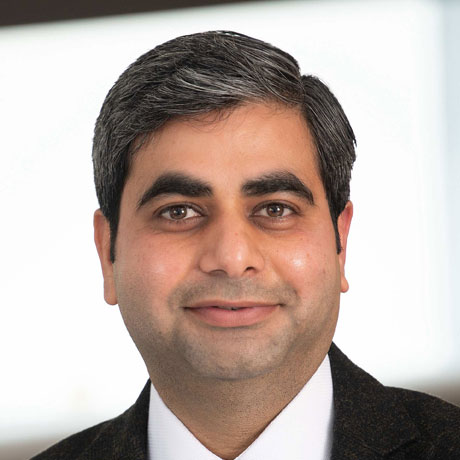Summary
Multiple long-term conditions (MLTC) also referred as multimorbidity means when a person has more than one chronic disease1. MLTC has emerged as a major global public health issue due to its associated adverse health outcome e.g., disability, poor quality of life, mortality, and increased health expenditure2,3. Older people (>40 years) are more likely to develop MLTC1,2. Gaps in the global datasets on MLTC exist which hinder in advancing applied health research in this field. Shukla Lab at the Personalised Medicine Centre (PMC), School of Medicine, Ulster University, has developed a Multi-Morbidity analysis Pipeline (MulMorPip) which discovered and characterised five MLTC endotypes (sub-types) in the UK Biobank4. UK Biobank is a rich repository of clinical and healthcare data of approx. 500,000 UK participants from England, Scotland, and Wales, but unfortunately none from Northern Ireland. PMC’s internal database of Northern Ireland participants has data on MLTC, and other clinical variables. Our collaborator from KEM Hospital Research Centre India manage a Health and Demographic Surveillance Systems (HDSS) which collects data on demography, disease burden, reported morbidity status, genomics and transcriptomics. We want to find out if MLTC endotypes we discovered in UK Biobank exist in Northern Ireland and India, and if they are different due to different ethnicity. Deploying MulMorPip will help in establishing and characterising sub-types of MLTC across these countries. We will then investigate disease trajectories in terms of their sequence and time of occurrence in each of these MLTC sub-types, which when revealed will help in developing personalised treatment pathways and early interventions to prevent further consequences of MLTC. This PhD project builds on a Global Challenge Research Fund (GCRF) Networking grant awarded by the Academy of Medical Sciences UK in 20235 and the UK Biobank study led by Dr Shukla6.
Important Information: Applications for more than one PhD studentship are welcome, however if you apply for more than one PhD project within Medicine, your first application on the system will be deemed your first-choice preference and further applications will be ordered based on the sequential time of submission. If you are successfully shortlisted, you will be interviewed only on your first-choice application and ranked accordingly. Those ranked highest will be offered a PhD studentship. In the situation where you are ranked highly and your first-choice project is already allocated to someone who was ranked higher than you, you may be offered your 2nd or 3rd choice project depending on the availability of this project.
Specific skills requirements of the applicant: The project will be entirely computational. Thus, we are seeking a student having a strong interest in computational approaches evidenced by good programming skills (preferable in Linux/Shell, Python and R) and knowledge in bioinformatics and statistics. However, students from more biology oriented background but strong interest to learn bioinformatics and programming are also encouraged to apply. Appropriate training will be provided during the course of PhD study. For any informal enquiry and/or to discuss more about the project, please contact the chair of the supervisory team: Dr Priyank Shukla
Essential criteria
Applicants should hold, or expect to obtain, a First or Upper Second Class Honours Degree in a subject relevant to the proposed area of study.
We may also consider applications from those who hold equivalent qualifications, for example, a Lower Second Class Honours Degree plus a Master’s Degree with Distinction.
In exceptional circumstances, the University may consider a portfolio of evidence from applicants who have appropriate professional experience which is equivalent to the learning outcomes of an Honours degree in lieu of academic qualifications.
- Experience using research methods or other approaches relevant to the subject domain
- Sound understanding of subject area as evidenced by a comprehensive research proposal
- A comprehensive and articulate personal statement
- Research proposal of 1500 words detailing aims, objectives, milestones and methodology of the project
Desirable Criteria
If the University receives a large number of applicants for the project, the following desirable criteria may be applied to shortlist applicants for interview.
- First Class Honours (1st) Degree
- Masters at 70%
- Research project completion within taught Masters degree or MRES
- Experience using research methods or other approaches relevant to the subject domain
- Publications record appropriate to career stage
- Experience of presentation of research findings
Equal Opportunities
The University is an equal opportunities employer and welcomes applicants from all sections of the community, particularly from those with disabilities.
Appointment will be made on merit.
Funding and eligibility
This project is funded by:
- Department for the Economy (DfE)
- Vice Chancellor's Research Scholarship (VCRS)
Our fully funded PhD scholarships will cover tuition fees and provide a maintenance allowance of £19,237 (tbc) per annum for three years (subject to satisfactory academic performance). A Research Training Support Grant (RTSG) of £900 per annum is also available.
These scholarships, funded via the Department for the Economy (DfE) and the Vice Chancellor’s Research Scholarships (VCRS), are open to applicants worldwide, regardless of residency or domicile.
Applicants who already hold a doctoral degree or who have been registered on a programme of research leading to the award of a doctoral degree on a full-time basis for more than one year (or part-time equivalent) are NOT eligible to apply for an award.
Due consideration should be given to financing your studies.
Recommended reading
1. Salive, M.E. (2013). Multimorbidity in Older Adults. Epidemiologic Reviews, 35(1):75-83.
2. Zhang, L., Ma, L., Sun, F., Tang, Z. and Chan, P. (2020). A Multicenter Study of Multimorbidity in Older Adult Inpatients in China. The journal of nutrition, health & aging, 24(3):269-276.
3. Bähler, C., Huber, C.A., Brüngger, B. and Reich, O. (2015). Multimorbidity, health care utilization and costs in an elderly community-dwelling population: a claims data based observational study. BMC Health Services Research, 15(1).
4. Prasad, B., Bjourson, A.J. and Shukla, P. (2022). Data-driven patient stratification of UK Biobank cohort suggests five endotypes of multimorbidity. Briefings in Bioinformatics, 23(6):bbac410.
5. https://acmedsci.ac.uk/grants-and-schemes/grant-schemes/gcrf-networking-grants
6. https://www.ukbiobank.ac.uk/enable-your-research/approved-research/computational-analyses-of-genotypic-and-phenotypic-data-with-treatment-response-from-patients-with-multimorbidity-and-the-role-of-inflammation-as-a-driver-of-multimorbidity

















